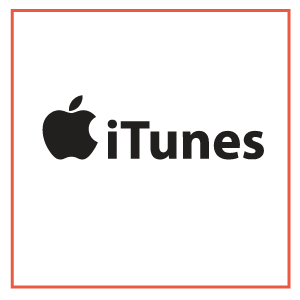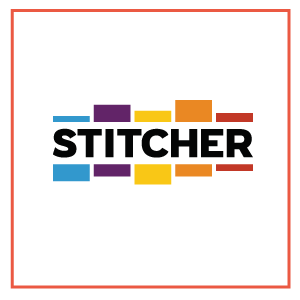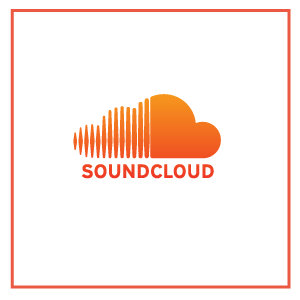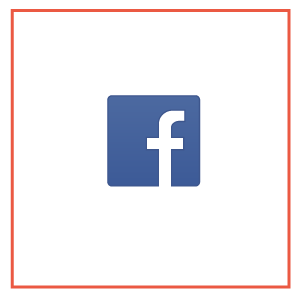Episode 29: Website Creation Brisbane
Starting a New Website? - Learn more about Web Design Brisbane here
ALSO LISTEN ON
READ THE TRANSCRIPT OF EPISODE 29 BELOW
[00:00:00] Saul: Hi everybody, and welcome to the Web Design Brisbane |Podcast. This is episode number 29. And today's episode is entitled Website Creation Brisbane. My name is Saul Edmonds, and as usual, I'm joined by the lovely Gillian Smith.
[00:00:13] Gillian: Good morning, Saul.
[00:00:14] Saul: Hello.
[00:00:15] Gillian: It's a little bit rainy today.
[00:00:16] Saul: Yes, yes, again, we are the co-founders and creative directors of Roundhouse, the creative agency, a local business with a passion for helping our clients grow. Over to you, Gil.
[00:00:26] Gillian: Okay, thanks, Saul. Well, today, we will talk about the process of website creation, building your website for your business from the ground up. Now our goal here is to help small business owners, start-ups and entrepreneurs in the city of Brisbane Australia, take the opportunity to the next level with brilliant website design, if you're from another location or city. Welcome. Thanks for joining us today. And we hope that we can help you grow your business in the online space.
[00:00:54] Saul: So what today's topics, Gil?
[00:00:56] Gillian: Okay, today, we'll be talking about website creation, we're going to get into the nuts and bolts for those just starting their website journey. The starting point today will be domains, how to secure your domain name, your preferred domain name, and from day will give you an overview of the most popular web platforms. And plus, we'll provide a discussion on what you need to organize before you actually start your web project.
[00:01:24] Saul: Because it sounds like there's a lot to cover here today. Well, we got to start.
[00:01:30] Gillian: Okay, well, let's start with website creation and domains.
[00:01:34] Saul: Okay, so for those brand new to website design what's a domain name. Okay. So basically, when you go, you search anywhere, like ours, for example, is roundhouse.cc. Generally, you would have the www in front of it, but it's not required. If you just type that in, or you've got Google, for example, g double og le .com .au. That's a domain name. That's really the little signpost that points you to the actual content and the website itself.
[00:02:11] Gillian: Okay, well, for people new to website design and getting that process, where do you get a domain name from?
[00:02:16] Saul: Okay, so there's a huge range of places you can get them online, often, you're provided that you go to like us can actually sort that for you, they can actually register it for you. There's places online like GoDaddy, crazy domains, and so on. There's hundreds of them.
[00:02:36] Gillian: So, Saul, have you got any tips when it comes to choosing a good domain name?
[00:02:41] Saul: Good domain name or domain names. Some people consider that the shorter they are the better. And generally, that is true, because you want people to be able to easily remember it as well, because ultimately, it's a part of the brand as well but a good domain name, if you're having say more than one as well, because you can point extra ones, you can have your primary one that's used on all your material that you tell everyone about but then you can have other ones as well, that also can include key keywords, but also, so that people, I mean, the trade-off between having a shortened annotated version, that if people look at it, they don't actually see your name, because your name might be four words long and having dot more make a domain name is too long. But generally, it might be good to grab that longer version anyway. So one, nobody else gets it, and you have it, and you can still point it over but you might be able to do something else with it as well.
[00:03:56] Gillian: Okay, well, so today and chatting about web creation will we're going to talk about web platforms so just for those starting out, what actually is a web platform,
[00:04:05] Saul: Okay, so another word for a web platform might be a CMS or a content management system. So that's the way in which people like us build websites, but also having a platform where you can then edit the site yourself, you might also have a custom made web platform that might be a learning management system to an lms, in order to have an online space where you're doing online education, or so forth so there's a few different things that can be called a web platform.
[00:04:40] Gillian: From your point of view, one of the most popular web platforms for small business?
[00:04:45] Saul: Okay, so if we're talking about web platforms, being content management systems, some of the most popular ones in the world of WordPress, things like Squarespace, [inaudible], magenta, and there's a range of other ones is probably on the show. There's quite hundreds, but there's a lot of different content management systems, and ones that people also build out from scratch to suit like we have in the past.
[00:05:17] Gillian: Okay, well, now we're going to talk about web creation and the process of actually getting started with your website. Okay, so you want to get started. What do I need to get sorted before that process begins?
[00:05:29] Saul: So before you start your actual site?
[00:05:33] Gillian: Yeah, before you even begin your website, your new website design or process, what things do you need to have in place?
[00:05:41] Saul: Okay, so some of that just comes down to if you're speaking with your web designer, and you're especially if you're brand new to this, and generally a lot of people want no have no idea where to start. This is where even doing this podcast is really designed, especially for people who've got no idea just to give them and an insight into those things so one of the very first things I do is just to think about, generally not even think about it in terms of your website, think about how you want your business to be represented because people think that those two things are different in in one sense, there's your own specific things you need to know when you're starting a website. But if you think about your business and how you want to be represented, whether that's in print or online, you can't go wrong, because then your website designer can help you formulate that in a really good suggested way for that particular platform for that site. It's a great starting point.
[00:06:56] Gillian: Having your brand and logo in place is really they key.
[00:07:00] Saul: Yeah, that's right and your brand, then being the whole range of other things like your value proposition, about what you're, what you're offering people, how you want to speak about your services, the way in which you want to sell and also the way in which when people come to your website, the bigger picture being, what sort of sales funnel or process from your website you want them to go to. So the bigger picture is a fair bit bigger. But since we're just looking at website design will stick to that for now.
[00:07:38] Gillian: Okay, well, in essence, you need to have clarity on your business goals. But you also need to have a good understanding of your target audience.
[00:07:46] Saul: Yeah, exactly and your target audience might be splitting two different audience groups. But if it's a lot more specific, you might be then in discussion with your website designer to talk about how that might differ. If you're going to be targeting a particular audience for especially so if you're selling products online, and there's a particular why, and other features within the website that you need to include to enhance that process.
[00:08:22] Gillian: Okay, well, when starting out to organize a new web project, when you start, when should you start getting your content sorted in website content?
[00:08:30] Saul: Well, simply as soon as possible because the things that always happen with really, there's not too many website processes. People are busy. They don't always know what they have to get it, there's not good communication from the website designer, then that just makes the process longer, and increases frustration, and makes it a not as good experience but the sooner the better because then if there's things that you think you need, and you actually need to provide a lot more than that, at least if you start early, and you start talking to the person creating your website, as early as possible, you can identify any potential gaps or things that you need to do, or they need to do.
[00:09:27] Gillian: Okay, well, what about the images on your website? You, as a small business owner needs to organize them or does your web designer take care of all that for you?
[00:09:36] Saul: Well, that's going to come down to a good Skype to set an example might be that if you have a photograph of yourself that you took yourself a time, and really it doesn't, it's not really up to scratch, your website design, if they've got a great relationship, all they do those services, like really great headshots pathetically for small business owners, they can arrange that for you.
[00:10:07] Gillian: Is it important to put a face to every business, I think?
[00:10:10] Saul: It is, yeah, I think no matter what it is, having some human element is really important so great photography, which of course is great content.
[00:10:19] Gillian: How many about pages have no photos?
[00:10:21] Saul: We'll have no photos, or they have a photo, which isn't appropriate for what they're talking about. Because first impressions do last, and people want to do with other people who are professional, and I mean, it is a bit of a no brainer because if you want that you go yes, I want to be professional, I want to come across as that I want my brand to be but there's one part of it that falls down, which how you actually then look, then that does a might have a little impact, but it does have an impact.
[00:11:00] Gillian: What are your thoughts generally just about using stock photography?
[00:11:03] Saul: Stock photography is widely used, but the reality is that you have to use it with a grain of salt and use it very carefully because people, even if people aren't experts, they're not designers, people have a pretty clear idea of what stock photography when they see it, they're very attuned to visuals these days online and people have an idea when that picture of like the different cultural groups all sitting in an office, probably in that person's office, there's, and especially if those cultural groups aren't appropriate to the country in which you're doing it, it's even more obvious so that can have a negative, more of a negative impact than anything, even though the convenience of the CEO of stock photography is great and like don't get me wrong today. It can be really good if you use it in the right way but ultimately, the best resolve that gives added trust, and gives really the right message is when you get custom photography done, because it adds a lot of weight to any experience online.
[00:12:29] Gillian: `Okay, well finally, Saul, from your many years of experience in web design development, what would you say is the final parting words, the things that you need to get started, get need to get sorted before starting out with the small business website?
[00:12:43] Saul: Okay, so just a simple list, great to have before you start in that process, your branding and your logo in place, demand domain, or domains, really clear business goals, because that's going to impact on your scope and how you think about your content as well. In fact, it'll probably make everyone's life a lot easier, especially yours. Even if it takes a little bit longer, really clear understanding of your audience, have your website content ready to go or at least be thinking about it have a strategic approach to it. Having a starting point doesn't have to be hundred percent finished but have a good starting point to expand on it in the conversation with your website designer, and any website images but instead of saying that to your website designer can usually help with all of that. But that's an open conversation as well or it should be anyway. Okay, and once again, thank you so much for listening, guys. That's actually it for today. Before we go, please don't forget to write, review and subscribe to this podcast. We'd love to hear your feedback. Also, if you'd like to read the transcript of this episode, please visit our website roundhouse.cc forward slash web-design. We're on a journey to help local Brisbane businesses grow the opportunities online and exceed their goals. Thanks for listening and we'll see you tomorrow. Bye, guys.








